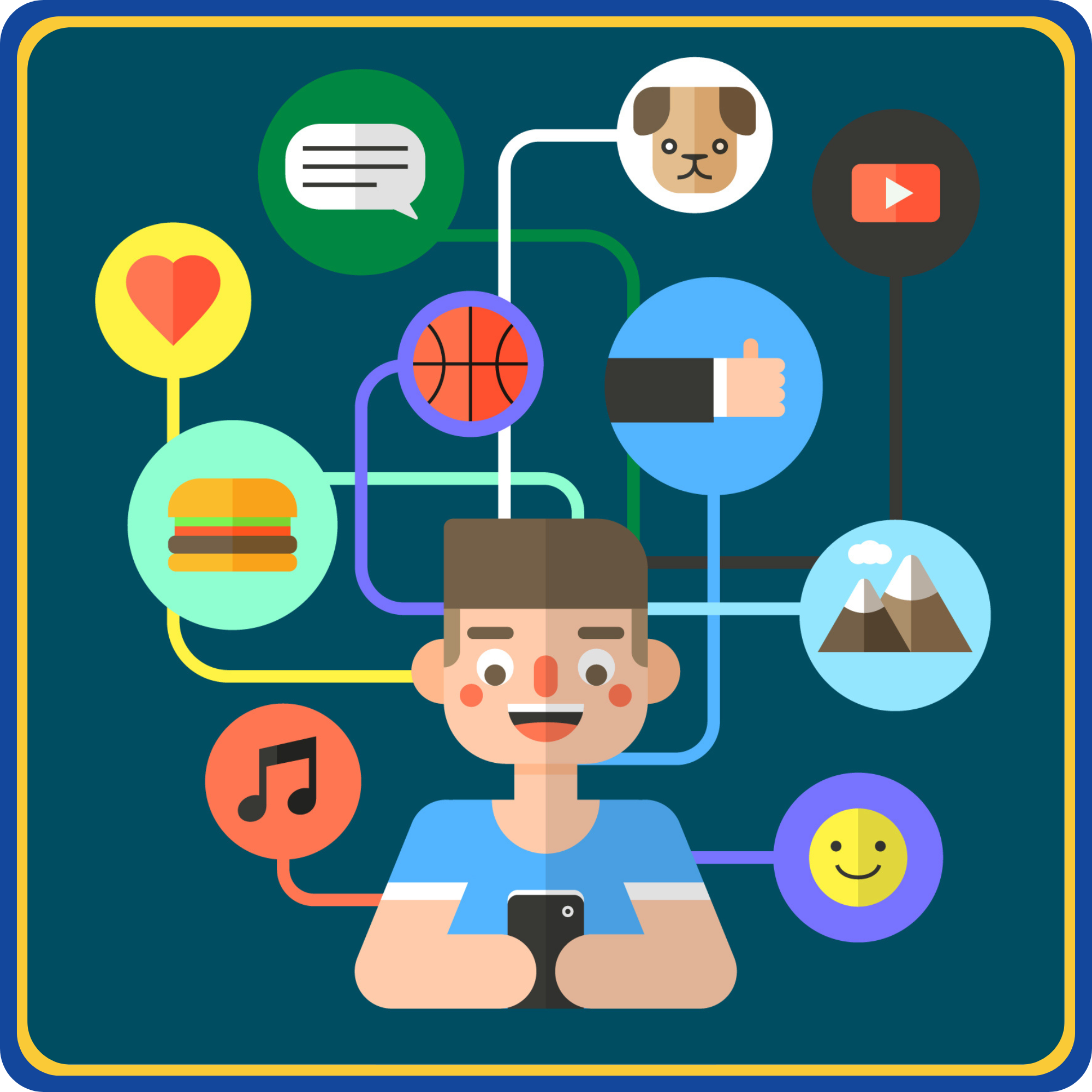In the midst of the hustle and bustle of modern life, many of us wonder if success is solely about professional knowledge or IQ. In reality, in many cases, success in career, education, and even social relationships depends greatly on the ability to connect in an engaging way and interact appropriately with those around us. A possible answer to this is Interpersonal Intelligence, the “magic” key to help you achieve success and build the life you desire.
The Nature of Interpersonal Intelligence
Interpersonal Intelligence, or Social Intelligence, is one of the nine types of intelligence according to the Theory of Multiple Intelligences. This intelligence provides the ability to understand the emotions, thoughts, needs, and desires of others with depth and sensitivity. Not stopping at the ability to recognize, individuals possessing this intelligence also know how to utilize that empathy to adjust their own emotions and behaviors, build strong relationships, and resolve conflicts smoothly. This is not just a supplementary or “nice-to-have” skill, but truly a fundamental element for comprehensive development in both career and personal life.

Possessing Interpersonal Intelligence offers advantages in building relationships and trust
The Role of Interpersonal Intelligence
Every day, we interact with many people, from family and friends to colleagues and even strangers. How we manage these interactions will determine the quality of our relationships and even career success.
Suppose you are the most skilled professional in a team but lack communication and cooperation skills. In that case, your ideas will be difficult to convey smoothly and gain consensus from other members. Conversely, if you know how to listen, have the ability to understand and communicate effectively, you will not only be “liked” by everyone but also be able to positively influence the emotions of others, thereby building a harmonious working environment.
Interpersonal intelligence is the foundation for navigating all communication situations. At work, it helps you work effectively in teams, resolve conflicts, and build relationships – essential skills for advancement. In your personal life, it helps you cultivate deeper and more meaningful relationships while showing empathy and sharing with loved ones.

Interpersonal Intelligence has diverse applications in learning, work, and life
Enhancing Core Competencies
Interpersonal Intelligence is not just about getting along with everyone. It is a combination of a range of other important skills that help you “navigate” relationships skillfully.
1. Active Listening
Active listening is not just hearing what others say but also understanding the message they want to convey. This requires you to focus on the speaker, provide feedback through body language, avoid interrupting, and ask questions to delve deeper or clarify meaning. Active listening is an effective tool for building trust, respect, and mutual understanding.
To become an active listener, you need to eliminate distractions, especially your phone, whenever you have a conversation. Focus all your attention on the speaker, listen to them instead of just thinking about your own response. Don’t hesitate to repeat their points to confirm your understanding with questions like: “So you mean…”, “If I understand correctly…” or simply nodding or making eye contact during the conversation.
2. Empathy
Empathy is the ability to put yourself in another person’s shoes, feel what they feel, and respond with compassion and sharing. Empathy helps you connect with people on a deeper level, making them feel valued and understood.
Empathy skills need to be practiced regularly. In addition to practicing active listening, you need to pay attention to nonverbal cues such as body language, tone of voice, and facial expressions. When someone shares something difficult with you, show support by acknowledging their feelings. A simple statement like “You must be going through a tough time. Is there anything I can do to help?” can also help them feel understood and comforted.
3. Verbal and Nonverbal Communication
Communication is not just about words. Body language, facial expressions, and tone of voice play an important role in conveying and receiving messages. Being aware of these signals helps you express yourself clearly and “read” the emotions and intentions of others.
Communication is not just a type of intelligence; when combined with Interpersonal Intelligence, it results in a harmonious combination of verbal and nonverbal language. Maintain open body language, avoid crossing your arms or looking away, which can easily distract from the conversation. Adjust your voice to suit the message you want to convey. At the same time, observe the nonverbal cues of others to recognize their emotions and attitudes. Do they seem comfortable or tense? Are they really focused on the conversation or worried about something else?

People with high Interpersonal Intelligence always bring comfort to those around them
4. Conflict Resolution
Disagreements and conflicts are inevitable in any relationship. However, how you handle them will create very different outcomes. People with high Interpersonal Intelligence approach conflict constructively, aiming for mutual benefit. They seek “win-win” solutions instead of trying to “win” arguments.
Staying calm is the most important thing when conflict arises, helping us control the situation even when emotions are running high. Approach conflict with a solution-oriented mindset instead of trying to assign blame. Practicing negotiation skills will help you aim for compromise instead of confrontation, thereby building stronger relationships.
5. Building Trust and Cultivating Relationships
Trust is the foundation of any lasting relationship. Whether it’s a colleague relationship or a friendship, trust opens doors to open communication, cooperation, and mutual respect. Building trust requires consistency, honesty, and reliability over a long period, not just in a day or two.
And trust is also the foundation of all relationships. To build trust, you need to be honest in communication, not promising things you can’t deliver. Show trustworthiness by fulfilling your commitments. Besides, being transparent and open with your thoughts and feelings also helps you connect with people on a deeper level. At the same time, encouraging others to share sincerely is also a way for you to show respect and care for them.
Amazing Benefits from Interpersonal Intelligence
In addition to the advantages of building and developing relationships with teams and society, developing Interpersonal Intelligence also brings countless other benefits for your personal and future career development:

Interpersonal Intelligence is highly effective in relationships between people
1. Self-Improvement
The ability to navigate relationships and understand others promotes emotional maturity and self-awareness. You will become calmer with your own emotions and more sensitive when interacting with others, helping you adjust and control your reactions and connect better with people.
2. Strengthening Professional Relationships
At work, Interpersonal Intelligence helps you collaborate and work effectively in teams. People with high Interpersonal Intelligence are often very good at managing teams, resolving or mediating conflicts within the team, and motivating others. They are natural leaders and excellent teammates, with many opportunities for career advancement.
3. Increasing Adaptability
Astute employers not only look for candidates with professional skills but also highly value those who have good teamwork skills and fit the organizational culture. Strong communication skills are especially sought after in positions from trainee administrators to managers and leaders, as they often need to work directly with customers, partners, and in roles that require teamwork across different departments. By cultivating these skills, you will open doors to many attractive career opportunities.
4. Expanding Social Connections
In life and work, Interpersonal Intelligence will help you build necessary and more meaningful relationships with family, friends, and even future career opportunities. Communicating effectively, resolving conflicts more easily, and supporting others will help you make a mark and gain people’s affection.
Successful Role Models
There are many famous and successful people in the world who embody the achievements of excellent Interpersonal Intelligence. One example is the billionaire entrepreneur Elon Musk. As one of the most influential entrepreneurs of our time, Elon Musk not only possesses outstanding vision and intellect but is also a master of interpersonal intelligence. Besides his superior Logical Intelligence, he also has the ability to inspire, persuade, and connect with millions of people around the world through his words and actions. Elon Musk regularly communicates with the community on social media platforms, listens to feedback, and shows concern for social issues. Putting aside the elements of style or purpose, it is his approachability, openness, and sincerity that have contributed to building the image of a talented and inspiring leader who is loved and admired by many.

Most of the world’s outstanding leaders and successful people possess exceptional Interpersonal Intelligence
Another example is Nelson Mandela. The South African leader used interpersonal intelligence as a “weapon” to fight against the infamous apartheid regime. He possessed an extraordinary ability to inspire, persuade, and create consensus among a large number of people worldwide. Even with dissidents, Nelson Mandela still listened and sought common ground. It was his perseverance, tolerance, and respect for humanity that helped him unite the nation and bring freedom to South Africa.
Not just in business or politics, Oprah Winfrey, dubbed the “Queen of Media,” is a clear testament to the power of Interpersonal Intelligence. She possesses an extraordinary ability to connect, always making viewers of her show feel like they are chatting with a close friend. Empathy, listening, and sincere sharing have helped her win millions of fans around the world. Oprah’s talk show is not only entertaining but also inspiring, driving many positive changes in society.
Developing Interpersonal Intelligence
Like all other forms of intelligence, Interpersonal Intelligence can be developed through practice. Here are some practical steps to help you start your self-improvement journey:
Step 1: Self-Assessment
The first step to improving Interpersonal Intelligence is to look at yourself. Evaluate your current communication and relationship-building skills. Do you often listen actively or just focus on responding? Do you empathize with others or have difficulty understanding their perspectives?
Step 2: Seek Feedback
One of the most effective ways to develop is to seek feedback from those around you. Ask your colleagues, friends, or mentors about things you can improve in communication. Constructive feedback will help you identify blind spots and shortcomings in your communication.
Step 3: Practice Regularly
Interpersonal Intelligence is formed and improved through practice. Take every opportunity to communicate with people in different environments, such as group projects, meeting friends, or networking events. The more you practice, starting with small and simple gestures and actions, the more natural these skills will become.
Step 4: Learn from Those Who Have Gone Before
Experienced people, especially in the same field, are valuable resources for you to consult and develop interaction skills. They can share their lessons and insights, guide you on how to approach difficult conversations, build relationships, and communicate effectively in multi-faceted situations to prepare accordingly.
Step 5: Participate in Skills Development Programs
Programs specifically designed for young people, such as the Internship of Excellence Program (IEP), can promote the development of Interpersonal Intelligence for future talents. These programs provide opportunities for mentoring, teamwork, and practical experience, helping you hone your interaction skills in a supportive environment.

Clearly understanding, practicing regularly, and participating in programs and activities help enhance Interpersonal Intelligence
The Power of Connection
Interpersonal Intelligence (Social Intelligence) not only helps us communicate effectively but also builds the foundation for relationships that help you develop yourself, contribute meaningfully to the community, and overcome complex situations in communication with empathy and sincere understanding. By developing this intelligence, you not only unlock your own potential but also contribute to the development and success of those around you.
The journey to conquer Interpersonal Intelligence is a process of continuous learning and practice, and the rewards you receive will be well worth it. So start today – listen with your heart, empathize sincerely, and build relationships that will shape your future.
Quick Interpersonal Intelligence Test
To help you visualize and quickly assess your Interpersonal Intelligence ability, imagine yourself in the following five situations and choose the response that you feel is most appropriate for you:
Situation 1: In a team meeting, your opinion is strongly opposed by other members. You will:
a. Calmly listen, then gently explain your point of view and seek common ground for cooperation.
b. Feel a bit uncomfortable but still try to stay calm and present your opinion more clearly.
c. Be agitated and immediately retort, defending your opinion to the end.
d. Remain silent even though you feel uncomfortable, avoiding heated arguments.
Situation 2: A close friend shares with you about their difficulties in life. You will:
a. Listen attentively, ask questions to understand more clearly, and share your own experiences to help your friend.
b. Sympathize and comfort your friend, advising them to try to overcome it.
c. Feel sad and worried for your friend but don’t know what to do to help.
d. Try to change the subject to avoid talking about negative things.
Situation 3: You are working in a team for an important project. A team member does not complete their assigned task, affecting the overall progress. You will:
a. Proactively talk to that person privately, find out the reason, and together find a way to solve the problem.
b. Remind that person of their responsibility and ask them to complete the work on time.
c. Complain to other team members about that person’s lack of responsibility.
d. Do the rest of the work yourself to ensure overall progress.
Situation 4: You want to invite a new acquaintance to the movies. You will:
a. Learn about their interests, then suggest a suitable movie and schedule a convenient time.
b. Send them a message and ask if they are free to go to the movies.
c. Feel shy, waiting for them to take the initiative to invite you first.
d. Only invite them when you meet them in person.
Situation 5: You are presenting a new idea to a crowd. You will:
a. Prepare the content carefully, present confidently, and make eye contact with the audience to create a connection.
b. Read from the presentation slides, trying to present clearly and coherently.
c. Feel nervous and anxious, avoid looking at the audience.
d. Just want to finish the presentation as quickly as possible.
Now, remember the options you have chosen. Let’s see the results below.

Interpersonal Intelligence promotes engagement and creates a foundation for future opportunities
Mostly choose a): HIGH ability group
Congratulations! You possess an admirable level of Interpersonal Intelligence. You have excellent understanding, empathy, and communication skills. You easily connect with people, build strong relationships, and have a positive influence on those around you. Continue to develop this strength to achieve success in all areas of life.
Mostly choose b): MODERATE ability group
You are indeed a person with a talent for Interpersonal Intelligence. You know how to listen, share, and care for others. However, sometimes you are still shy or not really confident in communication. Continue to practice communication, observation, and empathy skills to enhance your ability to connect.
Mostly choose c) or d): LOW ability group
Communicating and connecting with people can still be a challenge for you. You often find it difficult to express emotions or understand other people’s perspectives. But don’t worry! Interpersonal Intelligence can be improved through practice. Start by actively listening, observing, and applying the communication practices mentioned in the article more often.
This is just a quick test, so it may not accurately and fully reflect your true ability in terms of Interpersonal Intelligence. The choices above do not indicate right or wrong. What’s more important is that we recognize the power and importance of Interpersonal Intelligence as a “soft skill” and how it is essential in the modern context. And no matter how talented you are, always remember to actively learn, practice, and develop your ability to connect to build meaningful relationships and contribute more to success and happiness in life.





